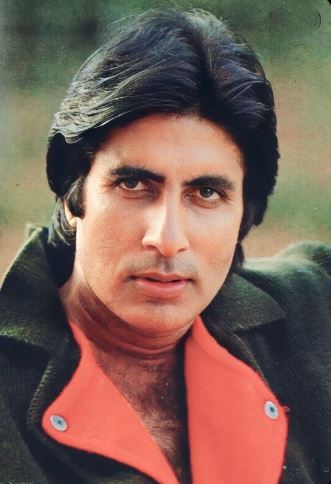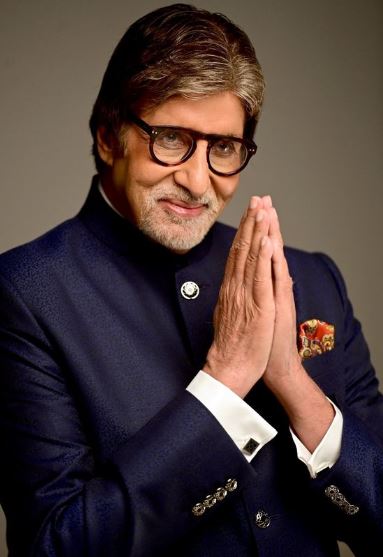Amitabh Bachchan, born on October 11, 1942, is one of the most celebrated and influential actors in the history of Indian cinema. Known for his deep voice, towering presence, and versatility, Bachchan has dominated the Bollywood film industry for over five decades. He is often referred to as “The Shahenshah of Bollywood”, “Big B”, and “The Angry Young Man”, a title he earned for his portrayal of rebellious and intense characters in the 1970s.
This article explores Bachchan’s life, career, major works, and his lasting impact on Indian cinema.
Early Life and Background
Amitabh Bachchan was born in Allahabad, Uttar Pradesh, into a family of prominence and intellect. His father, Harivansh Rai Bachchan, was a renowned poet, and his mother, Teji Bachchan, was involved in social work. Bachchan attended Sherwood College, Nainital, and later graduated from Kirori Mal College, University of Delhi.
Despite his academic background, Bachchan was drawn to acting. Initially, he struggled to find roles due to his unconventional appearance—tall and lean, with a deep baritone voice. However, his persistence eventually paid off, and he made his Bollywood debut in the late 1960s.
Early Career Struggles and Breakthrough
Bachchan’s film debut came in 1969 with “Saat Hindustani”, but it wasn’t an immediate success. He faced several years of struggle, appearing in films that failed to perform well at the box office.
Breakthrough with “Zanjeer” (1973)
Bachchan’s big break came with “Zanjeer” in 1973, where he played the role of Inspector Vijay, a brooding and intense police officer seeking justice. The film marked a departure from the romantic heroes of the time and introduced Bachchan as the “Angry Young Man”, a persona that resonated deeply with the frustrations of the younger generation during the political and social unrest in India. “Zanjeer” was a massive success and established Bachchan as a major star in Bollywood.
Rise to Stardom: The Angry Young Man Era
Following “Zanjeer,” Bachchan’s career skyrocketed. He became the symbol of the “Angry Young Man”, portraying characters who fought against corruption, injustice, and societal inequalities. During the 1970s and 1980s, he starred in a series of films that cemented his status as Bollywood’s biggest star.
Iconic Films of the 1970s and 1980s
- “Deewaar” (1975): Bachchan’s portrayal of Vijay, a man torn between his criminal life and family values, remains one of his most iconic roles. The film’s dialogues, particularly “Mere paas maa hai” (I have my mother), became legendary.
- “Sholay” (1975): In one of the most successful and influential films in Indian cinema, Bachchan played the role of Jai, a quiet but heroic character. The film remains a cult classic and is one of the highest-grossing Indian films of all time.
- “Don” (1978): Bachchan played a double role in this action-packed thriller, portraying both a ruthless gangster and his lookalike, a common man thrust into a dangerous game. His performance in “Don” remains iconic and was later remade by Shah Rukh Khan.
- “Amar Akbar Anthony” (1977): This film showcased Bachchan’s versatility, as he portrayed the comedic and charming Anthony Gonsalves, one of three brothers separated at birth. His role earned him immense praise for his comic timing.
- “Muqaddar Ka Sikandar” (1978): Another hit of the 1970s, where Bachchan’s character navigated themes of love, loss, and fate.
Versatility in Roles
Though Bachchan was known for intense, action-packed roles, he also showcased his versatility by taking on romantic, comedic, and dramatic characters. His ability to excel across genres made him a well-rounded actor, appealing to a wide range of audiences.

Personal Setbacks and Comeback
Life-Threatening Accident on the Set of “Coolie”
In 1982, while filming a fight scene for the movie “Coolie”, Bachchan suffered a near-fatal injury. He was severely injured during a stunt, and the accident led to internal bleeding and a critical condition. Fans across India prayed for his recovery, and when he returned to health, it solidified his status as a beloved national icon.
Political Career and Setbacks
In 1984, Amitabh Bachchan briefly entered politics at the request of his close friend, Rajiv Gandhi. He contested and won a seat in the Indian Parliament but found politics unsatisfying and stepped down after just three years. His time in politics was marred by controversy, particularly related to the Bofors scandal, although he was later cleared of any wrongdoing.
Financial Troubles and Resurgence
In the late 1990s, Bachchan faced severe financial difficulties with the collapse of his production company, Amitabh Bachchan Corporation Ltd. (ABCL). However, he made a successful comeback through television and cinema. In 2000, he hosted “Kaun Banega Crorepati” (the Indian version of Who Wants to Be a Millionaire), which became a massive hit and revitalized his career.
Later Career and Continued Success
Bachchan successfully transitioned to playing more mature and diverse roles in the 2000s, often portraying elder statesmen, patriarchs, and complex characters with a wide emotional range.
Notable Films in His Later Career
- “Mohabbatein” (2000): Bachchan portrayed a strict but caring school principal, marking his return to Bollywood stardom.
- “Black” (2005): In this critically acclaimed film, Bachchan played a teacher to a blind and deaf girl. His performance earned him several awards.
- “Paa” (2009): Bachchan took on the challenging role of a 12-year-old boy suffering from progeria, an extremely rare genetic disorder, showcasing his ability to take on unconventional roles.
- “Pink” (2016): A courtroom drama that addressed social issues like women’s consent and harassment, in which Bachchan played a retired lawyer fighting for justice.
- “Gulabo Sitabo” (2020): A comedy-drama in which Bachchan portrayed an eccentric old landlord, receiving praise for his nuanced and entertaining performance.
Awards and Recognition
Throughout his career, Bachchan has won numerous awards, including four National Film Awards for Best Actor and numerous Filmfare Awards. In 1984, he was awarded the Padma Shri, followed by the Padma Bhushan in 2001 and the Padma Vibhushan in 2015, some of the highest civilian honors in India.
In 2019, he received the Dadasaheb Phalke Award, India’s highest honor in cinema, for his lifetime contribution to Indian cinema.
Personal Life
Amitabh Bachchan is married to actress Jaya Bhaduri Bachchan, and together they have two children: Shweta Bachchan Nanda and Abhishek Bachchan, the latter of whom is also a prominent Bollywood actor.
Bachchan is also known for his deep baritone voice, which has made him a popular narrator in films and commercials. His voice has become iconic, and he has lent it to various causes, including public service announcements and documentaries.
Legacy and Influence
Amitabh Bachchan’s influence on Indian cinema is unparalleled. He is widely regarded as one of the greatest and most influential actors in the history of Indian cinema. His contributions to Bollywood, both in terms of his acting talent and his ability to reinvent himself over the decades, have left an indelible mark.
- Cultural Icon: Bachchan’s impact goes beyond films; he has become a symbol of Indian cinema globally. His fan following spans generations, and he remains a cultural icon in India and among the Indian diaspora.
- Inspiration to Actors: Many actors, including contemporary stars like Shah Rukh Khan, Aamir Khan, and Ranbir Kapoor, cite Bachchan as a major influence on their careers.
Amitabh Bachchan’s journey from struggling actor to global icon is a story of resilience, talent, and reinvention. With a career spanning over five decades, he has shaped the face of Indian cinema and continues to be a source of inspiration for actors and filmmakers around the world. Whether playing the “Angry Young Man” or an elder statesman, his performances continue to captivate audiences, cementing his legacy as one of the most iconic figures in the history of film.
